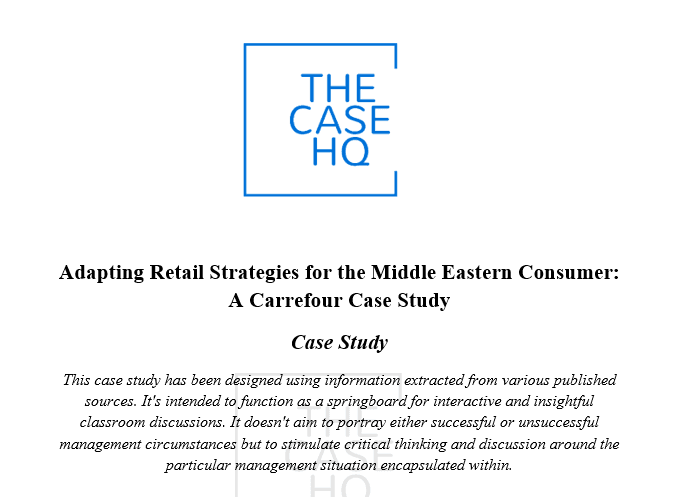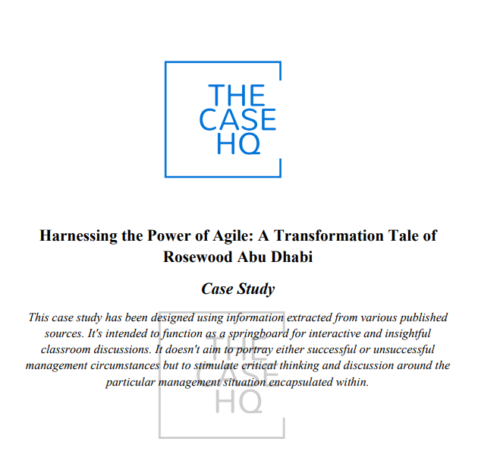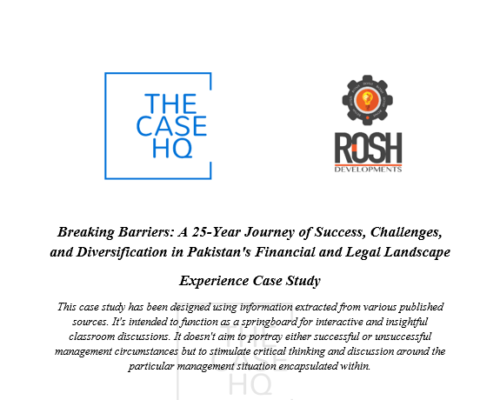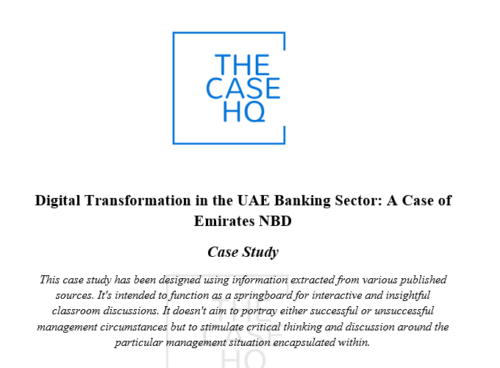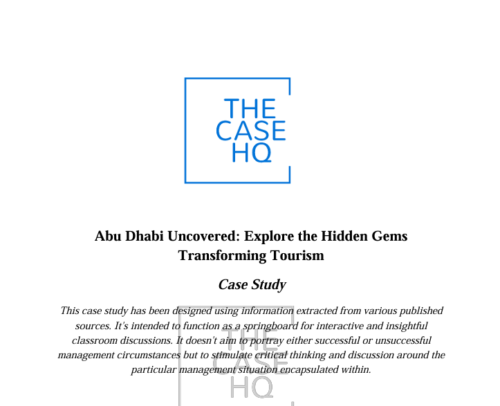Description
OVERVIEW
In 1995, Carrefour, one of the world’s largest hypermarket chains, made its foray into the Middle Eastern market by opening its first store in Dubai, United Arab Emirates. As a global retail giant with a presence in over 30 countries, Carrefour was well-versed in the complexities of international expansion. However, the Middle East presented a unique set of challenges. The region’s rich cultural heritage, diverse consumer preferences, and varying economic conditions meant that Carrefour couldn’t simply replicate the strategies that had worked in Europe or Asia.
UN SDGs:
SDG 8: Decent Work and Economic Growth, SDG 9: Industry, Innovation, and Infrastructure, SDG 12: Responsible Consumption and Production

